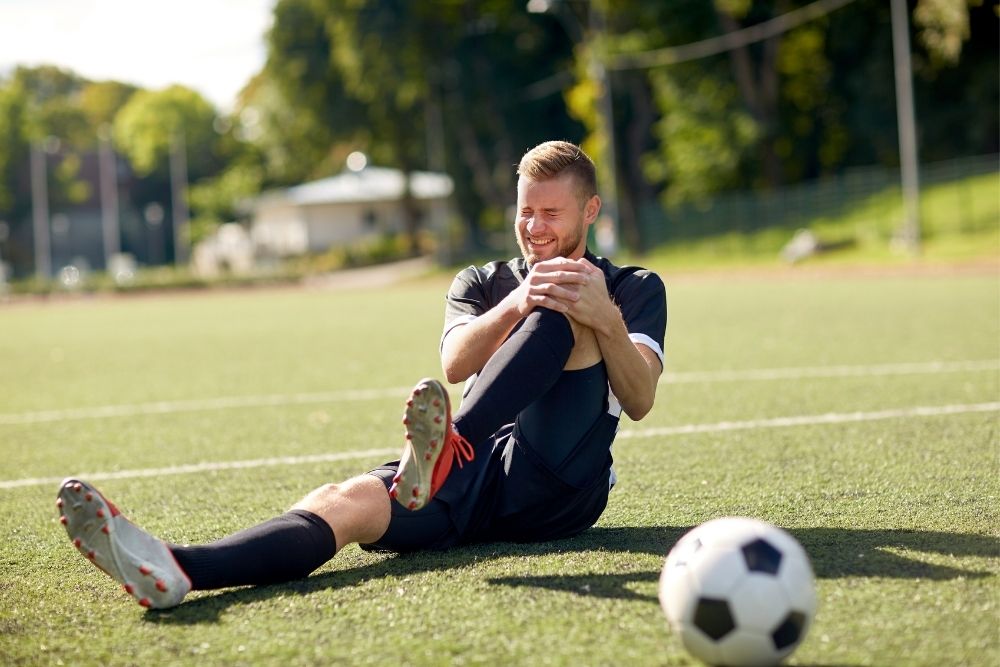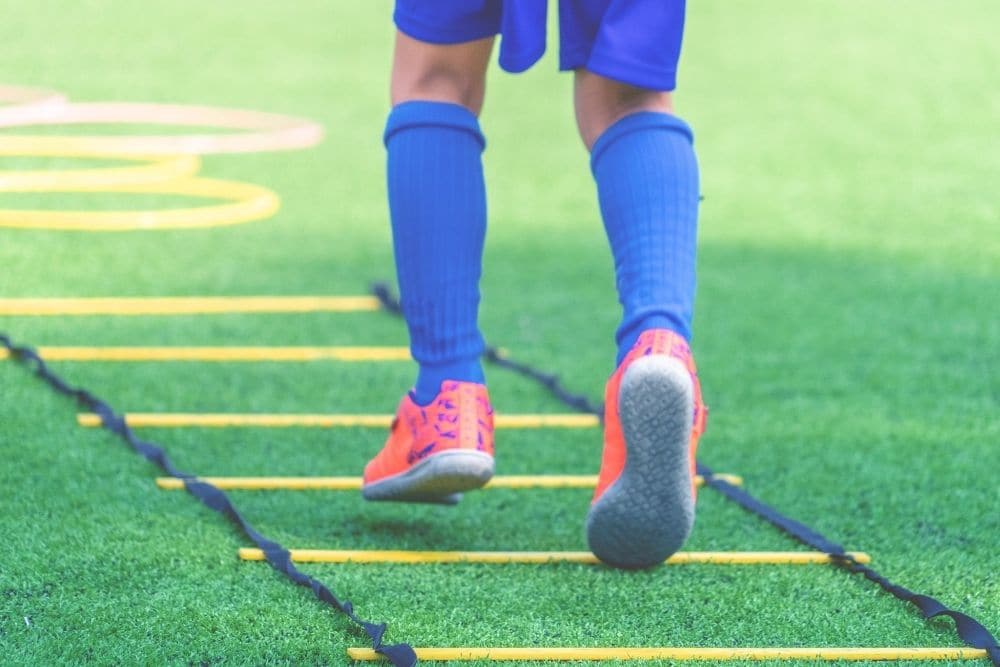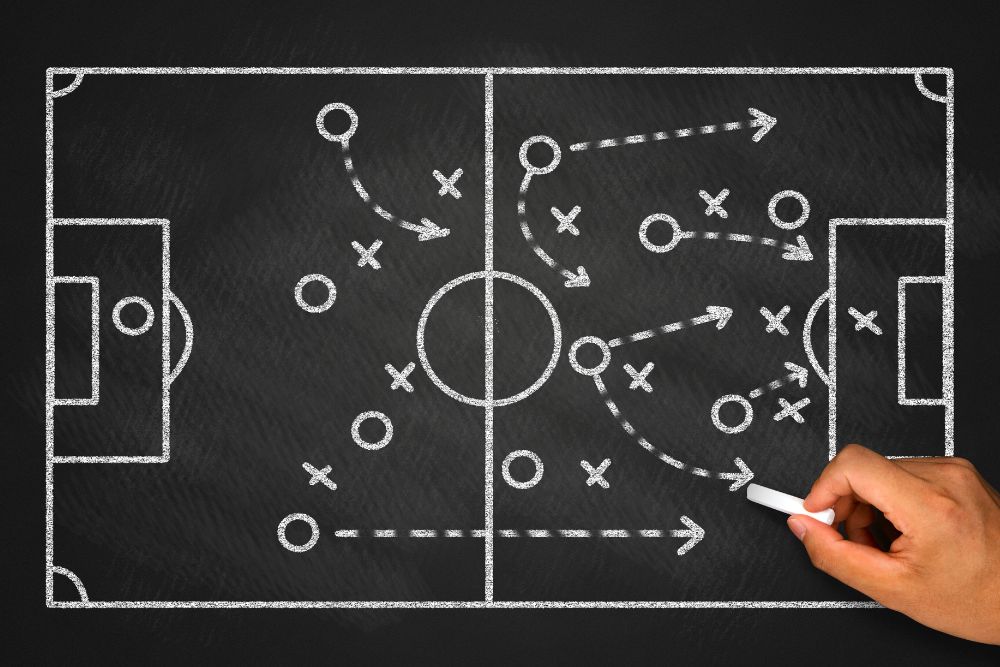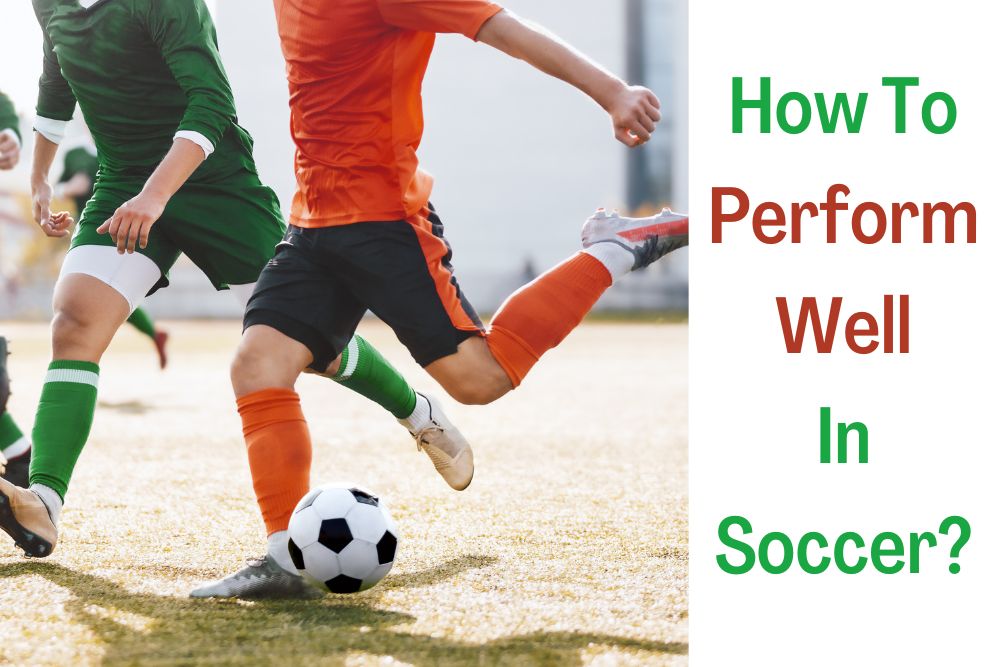Soccer has grown to become one of the world’s biggest sports in the 21st Century. This is why many young people of distinct ages and skill levels are clamoring to engage in it.
Like every other sport, soccer might seem tedious and a bit too demanding for amateurs seeking to play it professionally. Professionals may find it overwhelming at some point too.
Even during a friendly or charity game when it seems soccer players simply want to have fun, they still want to perform well. Generally, younger soccer players have to perform well at all times to get noticed.
Well, regardless of your skill or years of experience, there is always room for improvement in soccer.
To perform well on the soccer pitch, you are required to put in the necessary effort and required level of dedication. In addition to performing well, constantly improving yourself will boost your confidence and make you a valuable member of your team.
Interestingly, we are not talking about training with the ball alone. There are special drills (like agility, speed, and footwork) that can improve other aspects of your game even without training with a ball.
We understand that every soccer player wants to perform better. That is why we have put this important resource together to explain how to perform well in soccer.
Interestingly, the majority of the solutions we highlighted will not require any further behavioral change. These are things that you are probably doing already but we will tell you how to do them better.
Quick Navigation
How to perform well in soccer?
Are you frustrated because you are underperforming and can’t match up to your teammates on the soccer pitch? You don’t have to worry too much because there is hope for you to improve on your gameplay and eventually play better than those players you look up to for motivation.
Some players don’t usually notice their inadequacies on the pitch quickly enough until they start getting benched more frequently and disrespected by fans, teammates, and even their coaches. This shouldn’t be you. You have to take charge of your game before things start going south.
Performing well on the pitch has many perks attached to it such as helping your team win games, impressing your coach, dominating opponents, standing out, etc. Although training and exercises are very important for playing better in soccer, obtaining good performance on the pitch goes beyond just those two.
Follow us diligently as we guide you on the path to performing exceptionally well on the soccer pitch. By combining the techniques we will be revealing, your next game will surely be better.
1. Set goals and accomplish them
We have always known that setting goals help people to accomplish more in life and also helps in keeping track of our progress. Goal setting is a technique that most soccer players use in improving their physical and mental performance.
Goal setting can be described as a mental training technique used by individuals to increase their commitment to accomplishing an important task. These goals can be divided into short, medium, and long-term, and further subdivided into outcome, performance, and process goals.

Outcome goals are set to accomplish specific results while performance goals help soccer players to improve their performance over a set period. Process goals help soccer players to focus on specific vital aspects during training.
Having goals can enhance your clarity and focus as a soccer player, this will in turn, positively affect your performance on the pitch. Players with clearly written down goals are more effective and visible on the soccer pitch because they know exactly what they want to achieve even before starting a match.
The SMART (Specific Measurable Attainable Relevant Time-based) goals approach can also be used in effectively planning and achieving your goals as a soccer player. This approach helps athletes believe in their ability to succeed while increasing their confidence level.
2. Learn from the best
Talent doesn’t beat practice, the most famous people across different fields learned from the best. Observing and learning from the best soccer players in your position can greatly improve your performance on the soccer pitch.
You don’t necessarily come in contact with the best soccer players before you can learn from them. It is possible to learn by simply watching them play on match days or some of their past videos on YouTube.
Pay attention to the critical analysis of commentators while watching. You can learn how to dribble, juggle, and run with the ball just by watching professionals.
Always take what you learned from watching such matches and apply them to your training sessions. Keep practicing them until you start seeing improvement in your overall performance.
You can also watch previous games of your rivals to further understand how to beat them to their style of play. If you are observant enough and put your observations into practice, you will perform better on the pitch.
3. Play safely to prevent injuries
Playing dirty is among the easiest ways to earn a bad reputation as a soccer player. It can also cause serious injuries to both parties involved.
Injuries can drastically reduce your performance on the pitch and can even stop you completely from engaging in soccer activities.

Not taking proper care of yourself before and after soccer matches can also affect your performance on the pitch. Stretching before training sessions and properly relaxing after training and matches are good practices that can sustain your well-being as a soccer player.
Also, maintaining your position on the soccer field will help you play better and avoid clashing with your teammates on regular occasions.
For example, we have seen Thiago Silva and Virgil van Dijk step forward to score goals for their team. However, that can open up the defense for the opponents to score.
This will not go down well with the team members. If you must leave your position, make sure the risk is worth it.
4. Eat right
The right food choices are important to soccer players and can affect their overall performance either positively or negatively. Knowing when to eat is practically as important as knowing what to eat.
For example, soccer players need to be properly hydrated before every game. They also have to eat a diet rich in energy sources 2 hours before the game and snack an hour or 30 minutes before the game.

It is almost impossible to perform well in soccer if you are lacking energy or are dehydrated. This explains why professional soccer clubs employ a qualified nutritionist to keep tabs on what players are drinking and eating.
Ingesting the wrong food choices might just be the reason why you aren’t performing well on the pitch. If you suffer from cramps during soccer games, check what you eat and drink as the timing of your eating.
5. Improve your fitness
Many good exercises exist that can improve the fitness levels of soccer players as well as their skill set. Players with higher fitness levels usually perform better than their counterparts on the pitch.
You can tell the fitness level of soccer players by how long they can play on the pitch without showing signs of excessive fatigue.
Modern soccer is faster and more explosive at all levels than it used to be in the past. This is why maintaining a high fitness level is very important for all soccer players. Numerous anaerobic and aerobic exercises can help you perform better on the pitch.

Anaerobic exercises can help improve your bursts on the pitch. The more you engage in such exercises, the more you will see positive results both during training and matches.
Your training should be a combination of aerobic and anaerobic drills. Pre-seasons are the best time to improve your fitness—maximize the break.
6. Perfect your first touch
The first touch is the ability of a soccer player to maintain full control of a soccer ball as soon as it arrives at their feet or any other legal part of their body. If you don’t perfect your first touch, you will mostly lose the ball to your opponent or miss glaring goal-scoring opportunities.
Most professional soccer players have perfected how to execute the first touch regardless of which part of their body the ball falls. Developing a good first touch will help you make important decisions on the pitch without overthinking it.
To perform well in soccer, you need to include one or two first-touch drills in your training routine. Magic happens when you learn how to control the ball.
7. Train as much as possible
The secret to performing well during soccer games lies in training adequately. Train every day if you can and always train in the best facilities if you can afford them.
Try to get the most out of your training sessions. Bear in mind that some techniques can be tricky to practice and will require more time to perfect.
Learn to train alone without the company of teammates or coaches. Consequently, you will increase your confidence level without even knowing it.

Break your training routines into shorter time frames instead of longer periods that can lead to fatigue and loss of interest.
Improving your performance as a soccer player is similar to learning how to play musical instruments. You must master one note or bar before moving to the next.
It is all about repeating the practice until it becomes automated to your brain. Remember that training with teammates and coaches is as important as training alone.
8. Gain tactical knowledge
Coaches are required to have exceptional tactical knowledge. However, having this knowledge can also help a player to perform well in soccer.
By understanding team formations and playing styles, you can easily predict your opponent’s next moves. This can be instrumental for defenders that need to foil opposition attacks.
Players with good tactical knowledge can easily maintain their possession on the pitch as well as create viable opportunities for their teammates to score goals.

Central midfielders and center backs are the two major positions where technical knowledge is necessary because they are in the best position to view the entire pitch and relay useful feedback to their teammates.
When playing against a superior team, having good technical knowledge can help the smaller team execute perfect counterattack play and stun their bigger opponent.
9. Remain disciplined
Many soccer players, especially the younger ones, aren’t aware that discipline plays a major role in the way soccer players perform on the pitch.
Discipline is more important than talent because it keeps you focused on doing the most important things. For example, discipline tells you when to slide tackle an opponent and when to use your upper body.
We all know how reckless tackle can cost a team a crucial victory as well as ruin a soccer player’s career. Soccer players with the right level of discipline will always excel better than their counterparts who are better skilled but lack discipline.
10. Bond strongly with your teammates
Sometimes, all you need to perform exceptionally well in soccer is the cooperation and support of your teammates. This is the reason why you must make sure that you make your teammates your friends beyond the soccer field.
For example, as a forward, if your opponents don’t give you important passes, you will hardly score goals.

As the famous saying goes, “friends will always get your back”. Teams who see themselves as friends always perform better than those dealing with internal friction.
In an interview with Antoine Griezmann, the French and Atletico Madrid’s forward clearly stated that his little trick to performing well during matches is simply hanging out with his teammates to laugh and relax before match days.
Conclusion
You can still perform well in soccer even when you don’t have standard facilities and equipment. Discipline, commitment, and your relationship with other players are important factors that determine how well you will perform.
Your persistence and conviction to get better every day is much more important than the kind of training facilities and equipment at your disposal.
A lot about soccer has to do with mimicking others. Always be open to learning new skills from your teammates and opponents.
If you adhere to the points that we highlighted, you should see improvements in your game within a short time.
Hi there, I’m Jay.
Soccer is everything in my life! My friends and I have created this blog with all our enthusiasm, passion, and understanding after years of playing pro soccer. Hope you will enjoy it!
